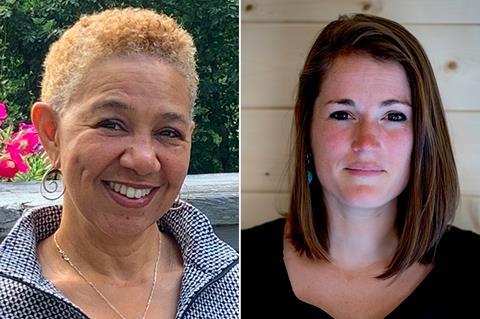
UK-based mental health specialists Film In Mind and US documentary community The D-Word are joining forces on a new industry-led pilot scheme, DocuMentality, to develop a mental health risk assessment process and free toolkit for the film industry.
The research is funded by BFI Doc Society Fund in the UK and American Documentary/POV in the US.
The organisers will start to carry out baseline research and a total of 16 focus groups in the US and UK in March and April.
From April, there will be anonymous online surveys of the documentary film community more also including international experts.
The best practice guidance and toolkit will be made available in 2023 as part of a free online platform for people to access support and risk assessments for any mental health challenges related to their projects
Some topics to be addressed will include trauma and secondary trauma, unsafe working conditions (bullying, harassment, etc); working with vulnerable protagonists; anxiety related to financial sustainability, stigma, intersectional issues, and a lack of access to affordable or relevant mental health services.
Rebecca Day, a documentary producer and therapist who runs UK-based organisation Film in Mind, tells Screen: “It feels really important to us to have the toolkit we put together be community-led, not just by a few people behind closed doors coming up with what we think the industry needs. We want to engage filmmakers in that conversation.”
Malikkah Rollins, a producer, festival organiser, trained mental health professional and D-Word ambassador, is spearheading the US side of the work alongside D-Word founders Doug Block, Erica Ginsberg and Marj Safinia.
While the toolkit can be useful to anyone working in film, it will also address some documentary-specific concerns. As Rollins says: “The topics that documentary filmmakers want to create are very human-centred stories, and human beings are complicated. Filmmakers often want to bring a spotlight to issues of trauma, issues of injustice, issues of abuse, etc. Those are hugely important stories to tell. But along with those stories, it is very easy to feel traumatised as a filmmaker, producer, a person on the crew, because you’re interacting with people who are suffering, who have often been suffering for decades and generations. There’s no way that that that trauma on some level does not seep into you.”
Rollins adds that the irregular nature of film financing can add stress as well. She says: “Documentary filmmakers are often working on tight budgets with limited resources on tight timelines, and they feel like it can be hard to carve out time within themselves or for their crew to focus on mental health and wellbeing.
She adds that a feeling of rejection can weigh on filmmakers. “The funding structure the industry is just it’s so dysfunctional. There are so many people going year after year after years for so few grants. So there is a lot of rejection.”
Day adds that they are looking for more partners to join the initiative. “We really need everyone involved, we need filmmakers, media executives, clinicians, platforms, academics, representatives from marginalized groups.”
Rollins added that an international approach was needed. “We’re really aware that mental health globally can be a tricky topic, many cultures don’t look favorably on mental health discussions. There are many lenses, not just the Western model. We want to honour different ways of approaching mental health.”
















![[L-R]: Amanda Villavieja, Laia Casanovas, Yasmina Praderas](https://d1nslcd7m2225b.cloudfront.net/Pictures/274x183/6/4/1/1471641_pxl_20251224_103354743_618426_crop.jpg)








No comments yet